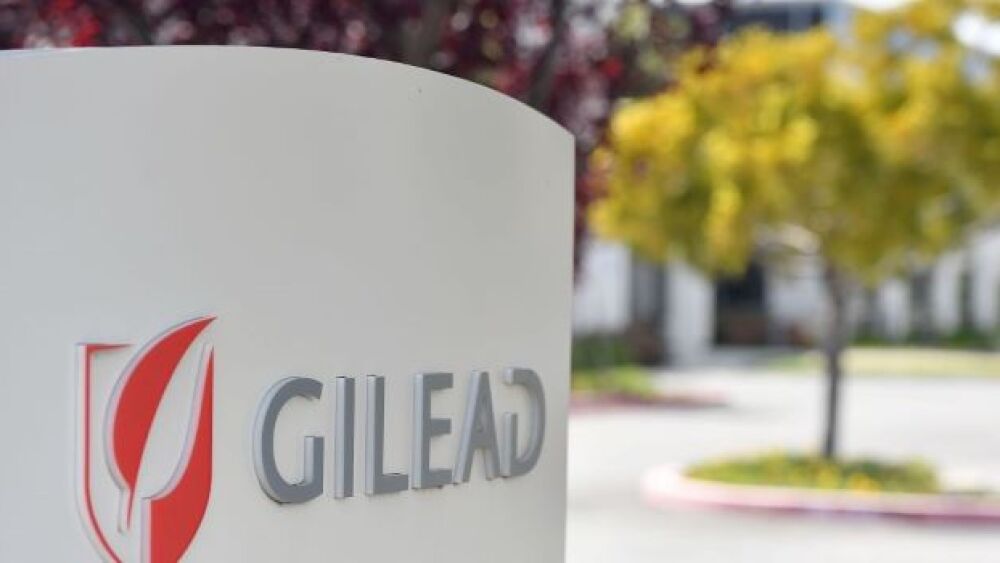Gilead and EVOQ Therapeutics announced a partnership to develop immunotherapies for rheumatoid arthritis and lupus.
Courtesy of Josh Edelson/AFP via Getty
Gilead Sciences and EVOQ Therapeutics kicked off 2023 with a new partnership to develop immunotherapies for rheumatoid arthritis (RA) and lupus, the companies announced Tuesday.
Gilead plans to utilize EVOQ’s proprietary NanoDisc technology, which the partners stated has “the potential to change the paradigm” for autoimmune disease treatment. It works by utilizing lymph-targeted delivery of disease-specific-antigens.
EVOQ is eligible for up to $658.5 million total over the course of the collaboration, plus tiered royalties on potential product sales.
William Brinkerhoff, CEO and co-founder of EVOQ, told BioSpace NanoDisc is a “potential breakthrough” for the treatment of autoimmune diseases.
These diseases occur when the body cannot tolerate certain antigens. Thus, Brinkerhoff said NanoDisc works by attaching tolerogenic antigens onto the NanoDisc, which allows the body to increase immune system recognition.
“That’s the breakthrough,” Brinkerhoff said. “The antigens have been well known, but they’ve never been delivered properly in a way that the immune system can recognize and benefit from.”
He explained that the delivery lies in the technology’s size. The NanoDisc itself is 10 nanometers, which allows for a systemic uptake by the lymph system.
This partnership is the third collaboration inked by EVOQ. In December, the company announced funding from JDRF to develop a drug platform to treat Type 1 diabetes. As part of the deal, JDRF will support and fund the development of the NanoDisc platform.
The December announcement broke a collaborative dry spell for EVOQ. Before that, the company inked only one partnership – an autoimmune-focused deal with Amgen. This occurred three years after the company’s launch out of the University of Michigan in 2016.
EVOQ’s push for partnerships, Brinkerhoff said, is one part of its two-pronged strategy for the year ahead. The other prong consists of focusing inward, advancing internal programs already in development.
Brinkerhoff hasn’t yet disclosed which indications the company will target in its internal programs, but he hinted at more fundraising announcements in the near future.
As for Gilead, its interest in EVOQ is likely due to both the NanoDisc platform’s early promise and an interest in expanding its autoimmune portfolio.
Currently, Gilead has one candidate in its pipeline to treat both RA and lupus – an IRAK4 inhibitor, GS-5718. The candidate is currently in Phase I. So far, it has produced positive early results.





